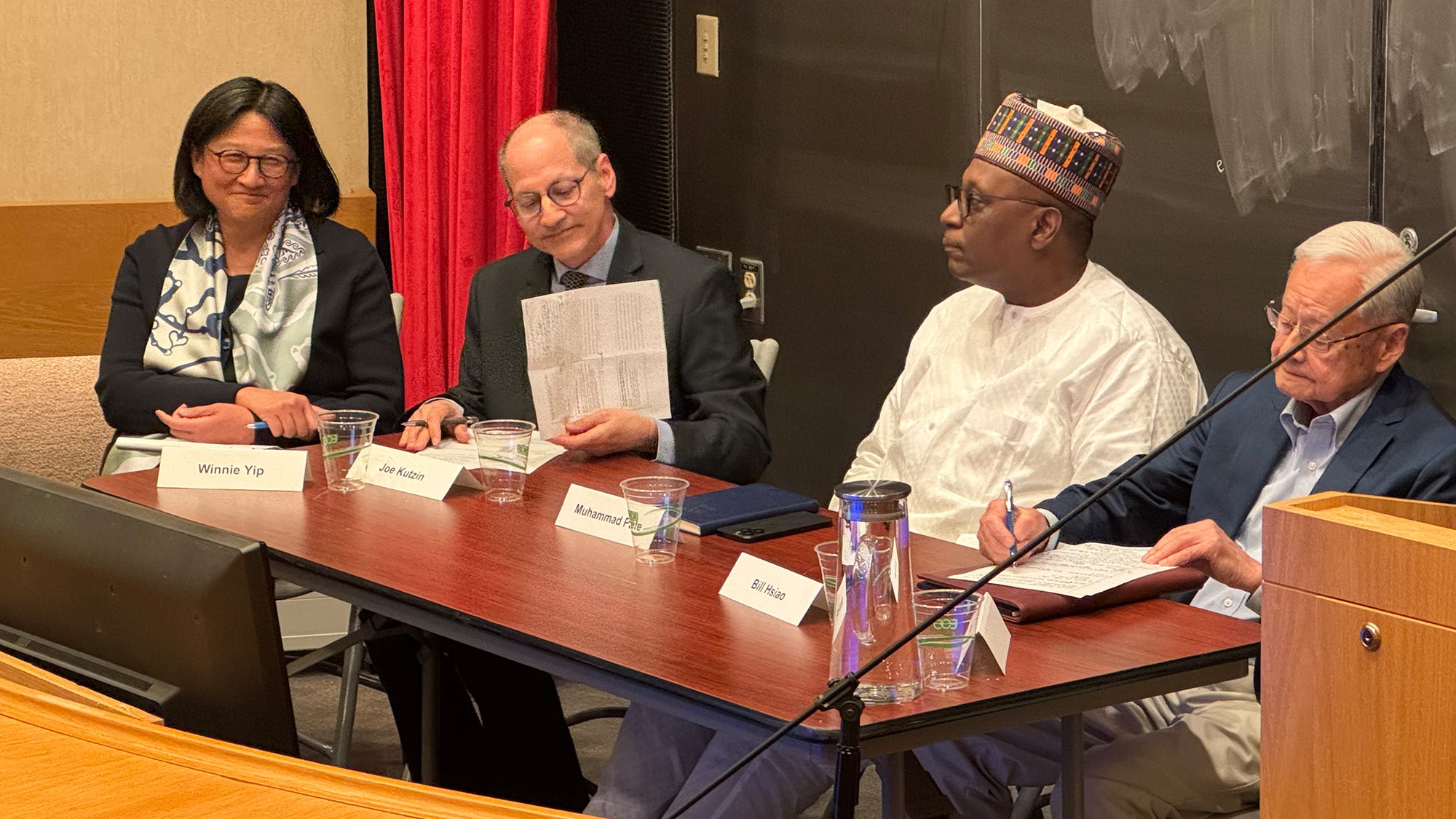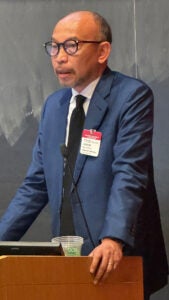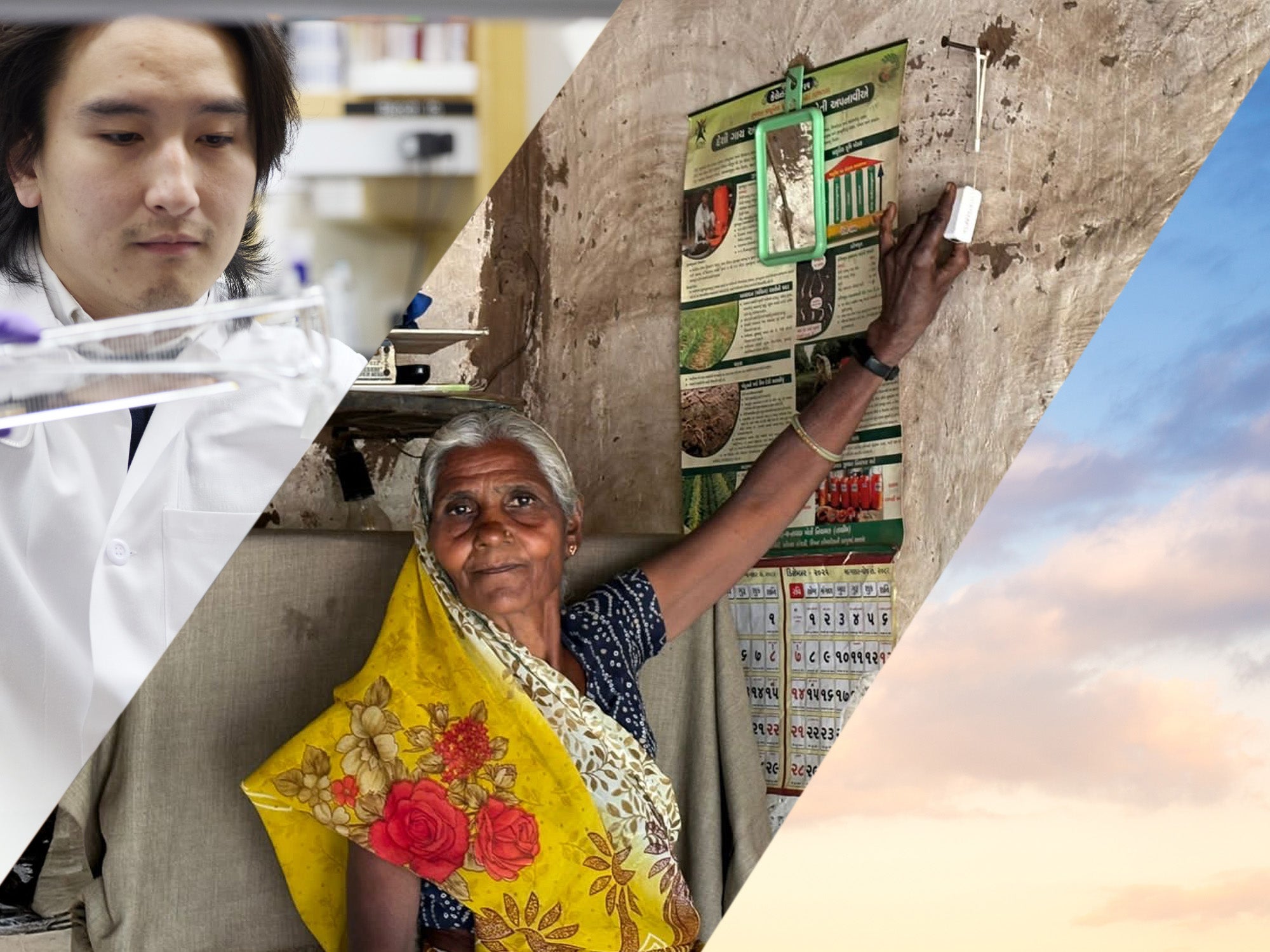Health systems can’t afford not to reform, experts say

On May 1, Harvard T.H. Chan School of Public Health students, researchers, and faculty members packed Kresge G2 for the Department of Global Health and Population’s annual Global Health Week Symposium. Muhamad Chatib Basri, former minister of finance of Indonesia and current chairman of PT Bank Mandiri tbk., presented the keynote address on building sustainable health systems.

After an introduction by Lia Tadesse Gebremedhin, executive director of the Harvard Ministerial Leadership Forum, Basri shared lessons from his time as a finance minister. While his expertise may not be in health, Basri said, he does know “what happens when the government’s budget gets sick.” He added that “bad times make for good policies,” meaning that crises often give politicians the opportunity to push through reforms.
Basri highlighted three key themes—prevention, technology, and incentives—as essential to health system reform. Although prevention can be an unpopular topic politically, he noted, the world learned from the COVID-19 pandemic that the cost of being unprepared is enormous, both in terms of finance and the loss of lives. He encouraged the development of technology that complements and supports health care workers rather than replacing them and stressed the need for incentives to break down governmental silos to facilitate a holistic response to health system problems.
The conversation continued during a panel discussion moderated by Rifat Atun, professor of global health systems and director of the Health System Innovation Lab. Panelists included Winnie Yip, professor of the practice of global health policy and economics, Bill Hsiao, K.T. Li Professor of Economics, emeritus, Agnès Couffinhal, global program lead for health financing at the World Bank, Joe Kutzin, senior fellow at Results for Development and former coordinator of health financing policy at the World Health Organization, and Muhammad Ali Pate, minister of health and social welfare of Nigeria. They emphasized the need for collaborating across government sectors, developing local supply chains, and investing in health systems as smart policy and smart politics.
In his closing remarks, Atun encouraged the audience to return to the final question posed by Basri: “The question is not whether we can afford the reforms, but whether we can afford not to reform.”


